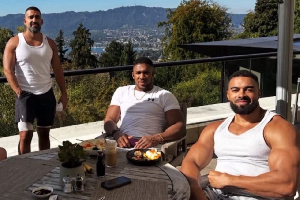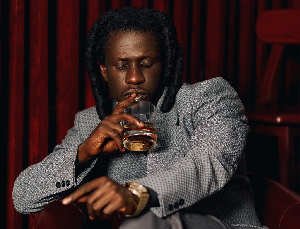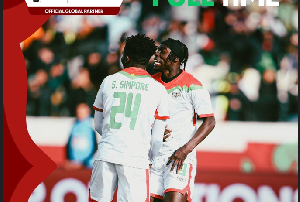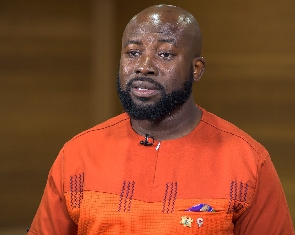Discussing culture is difficult because a lot of people these days confuse culture with tradition and indeed sometimes with the issue of modernity and then complicate it religion.
At one extreme are the so called post-modernists whose argument is about jettisoning overboard traditions because they inhibit development and are relics and shackles that have no relevance in the modern world; at the other extreme are the fundamentalists who believe that culture must be sustained in a particular traditional mode without context. I like to think that I can occupy the centrist ground on this and many other things because I abhor dogma and I am devoid of ideology even in things political.
Culture, in my understanding, is the totality of socially transmitted behaviour patterns, arts, beliefs, institutions and other products of human work, though attitudes that characterise the functioning of a group or organisations. I hold the view that culture, if you understand the meaning of the word, is relevant at all times because it shows enlightenment and depicts aspects of cultivation and training that cannot be lost at anytime.
The world changes but some constants remain, every day brings the birth of newborn babies, people get married and since we all come into this world with a return ticket, people die. All over the world people have their quaint rituals they practise under such circumstances; they have rituals that give meaning to their life and identity.
Colonialisation that sought to replace our culture with the Christian religion enabled us to imbibe a dualism in our lives that we may never be able to shake off and these occur in our daily lives, indeed enriches our lives enormously.
So whilst I was announced to the world at my* kpodzeimo* and given my name, I was also baptised at a church and given Christian names, though I got married at a *yooshibimo* and* yookpemo* ceremony in Ghana whilst both my wife and I were in this country, I also went to a registry in this country to sign the contract of marriage and when the time is right for me to go join the ancestors, I hope that I will be accorded my full *yarafeemo* funeral rites as well as taken to a church prior to my interment.
I often found myself the centre of attention during my post-graduate days in Manchester. My mates wanted to know so much about me and how I could come from far off to study in the same class with them. I had to explain to them that it was really just a regular guy who was nurtured in a different culture that allowed me to thrive. So I could share with them stories about my childhood at Teshie helping the fisher folk to bring the catch home but also explain to them that we had an equitable system for sharing the catch amongst the net, the canoe and the fisher folk, a system that should still operates till today and that the world acclaimed method for smoking fish is called the Chorkor cooker. I also did share other adventures. Because my mother would not let me go near the sea at James Town i had to learn how to swim in a pond at Oyibi and fished in the Odaw river at Kpehe. This was about helping them to understand that whatever they did in their daily lives I have also done and more because my training allowed me a dualism in my cultural outlook.
Some of my classmates came to understand why I had a Christian name in addition to my first name, and getting married the traditional way meant that I had many marriage counsellors to chose from and how our funeral rites and customs provided adequate bereavement counselling and closure to sadness and mourning. They even appreciate the principle of the extended family and why second cousins are called cousins or brothers. They saw the gem of such a system of communal help especially since it provides patronage for those with potential and support for those who need it most within a family or a village.
Growing up in anglicised JamesTown British Accra I learnt that culture determined whether you went to Holy Trinity where the service was conducted in English with some chants in the Latin, and you had to be in a suit, tails, top hat and the ladies in European dresses and assorted hats or St Marys where the service was in Ga and most wore African cloth. Cultural icons such as Ephraim Amu who gave us *wodientse wo shikpon ne*, were barred from preaching in church wearing the African cloth instead of European clothes and, and the first that I heard the talking drums in any church in Ghana was when Professor Ian Hall rendered Psalm 150 in powerful *kpanlogo* at the Aggrey Memorial Chapel at Achimota.
So there must be good reasons why we hold on to our culture. Our culture comes with some rich ethical values that we cannot jettison. We would have been truly totally lost if the colonists had taken away our cultural freedom when the took over our political and economic governance.
I live my culture and traditions because that is my identity and the younger ones in the Diaspora should not think that people such as myself are caught in a time warp. There was a time when we were told that everything cultural was fetish, primitive and superstitious and described in pejorative terms even to the extent of being denied speaking our language in primary school. So several years on I am now learning how to write my own language.
Why must I not speak English and Ga alike, why can I not enjoy my steak or Chinese or Indian and still love and adore *banku *and *egnormiflo*, indeed why can I not eat *gari* with milk, or Kentucky with *kenkey*? But if I can put on a three piece suit with a coat during the winter months why can I not put on my cloth for summer and go to the outdoor festivals and theatres and still enjoy our cultural displays of the rather exotic kind.
But the wish and the struggle is – how do we transfer this culture to our own in the Diaspora, especially within the multicultural mix of London.
It was a Professor Reuven Feuerstein who postulated that we are shaped more by what we learn than what we are born with and went on to suggest that children with learning difficulties could be taught to learn almost anything through a process of mediation that focuses on their potential. But he also applied that theory to the problems of cultural deficiency, that those of us born and bred in a monoculture of our villages find it difficult to transfer our culture to our children in an urbanised foreign environment and that the problem of inner city discontent and disaffection of immigrant youth can partly be attributed to cultural deficiency.
When we are not able to transmit our beliefs that served us well and pushed us seek a better world with greener pastures outside our little villages and towns, we deprive our children of the aspiration attributes that are embedded in our cultural make up. When we are too lazy or too busy to mediate our culture to them, thinking that it is best for them to adopt the dominant culture of our host country, they end up not only rejecting our culture but they choose the worst aspects of that host culture and end up totally lost.
We need to make our children understand that celebration of their culture helps them with their identity and by definition their confidence. They are fortunate to be in a place where there will always be diverse cultures all competing for attention but there is no need for them to replace their identity for a ‘false’ one. We need to be patient with them and explain to them who we are and where we come from and in time they will grow and appreciate us better. We must strive to transmit something authentic to our children.
The problem is entirely ours because we believe that by copying the dominant culture, we become more modern and perhaps more successful. But perhaps this has to do with the fact that the colonial influence on the African was more insidious and detrimental than on the Asian. Whilst the Asian continued with their culture and religion we exchanged our culture for the religion of the colonist.
So the Asian in the diaspora is more adaptable and more confident and more inspired to thrive and continue with the values that their parents brought with them on the journey from their origins.
The Chinese children go to their Saturday schools, the Iranian children do the same as do the many other cultures that abound, they speak their mother tongues, eat their foods, worship in their own faiths and even marry outside their own, but they still maintain the culture at their very important rites of passage from birth till death, they also learn to appreciate other cultures in this journey of lifelong learning and adaptability.
I have lived in England for several years and would I ever have to give up my culture of being Ga, would I exchange my identity and is there any good reason for me to give up what I am even if culture evolves. My age tells me that I cannot dance Azonto very well but I was quite fleet on my feet dancing to my Kpanlogo and can still make the moves and I love highlife, though still struggling with hiplife, but I also love soul music and reggae and the* oboade* songs of my Ga culture.
[image: IMG_8713]
I will be a Ga whether I am Christian or Muslim or practise traditional cults and I will continue to be a Ga whether or not I am in England, or Ghana or France or really wherever I am. And just like my grandfather was Ga and my great great grandmother was Ga, I do not see how my son or his children yet unborn will stop being Ga. I say this because being Ga is part and parcel of my ethnicity but primarily it is also my identity.
Now giving up my identity for another will be difficult for me to do; not transferring it to the next generation will be a wicked act of cultural suicide so I continue to participate on forums that project and promote culture not because I believe that one is superior to the other but more because I believe that it is dangerous to take away a peoples culture. I believe that the underlying fact of culture is its evolution over time; we will borrow from other cultures to enrich what we already have and I am sure that they will also take a bit of ours.
Which is why the young ones who say they have rejected our culture for more modernist culture do themselves no favours because there is no such thing as British Culture; there is the culture of the aristocrats and the middle class and the working class, there is culture of the Mancunian, Scouser, Brummie, Geordie, Cockney, and then we have the Rhonda Valley and the Highland and Isles and the Irish with their different cultures, I wonder which one they buy into when the rejected their Ga culture because it is too African?
Fortunately, the new breed of diaspora Ghanaian now has a craving for our culture, the pride in our culture is being gradually restored. As they become more educated they become more culturally enlightened; they are becoming more adaptable even when they are in mixed marriages and they have become more confident to accept that they can meet the modern challenges of the 21st century without having to sacrifice their culture or what little their parents transferred to them. Some are leading a cultural revolution back in their countries of origin where they travel to find out more even to the point of enlightening those who are less confident now that we have the onslaught of the new religion.
I am a non denominational Christian, but my religion is important to me, I accept Jesus Christ as my saviour, I believe in fellowship of worship but I also believe that the priestly, prophetic and pastoral duties of my reverend minister does not extend to my culture. Will I worship in a sect that i am older than - probably not.I
So I find it worrying that this new breed of deacons or apostles or prophets or overseers or whatever revered name they would call themselves who don snazzy and glitzy Superfly suits with shinning shoes and robes befitting James Brown are asking people to to ditch their culture. Now kpodziemo is being carried out in English the last I went to one an Ewe pastor was outdooring a Ga child in Tema and pouring Olive Oil from the Middle East on the infants forehead. The problem was that the English was wishy washy and I just cringed at what English the poor boy would grow up speaking. My advice to most is that when your overseer or bishop strays into the bounds of culture for which he or she is not trained, you change your pastor.
There is no contradiction in promoting your culture and worshipping your God or being modern. Culture has always and will always evolve especially for the enlightened and young people born and bred in a multicultural melting pot such as London will always straddle many cultures. This fact was brought home to me some time ago by my son. I had searched everywhere to get him a Ghana jersey when Ghana was playing against England in that very tribal of sports, football. He was very appreciative but just as he was leaving home to meet his friends, I say him take out his St George jacket, the whole point of the match for him was that he was going to see Rooney and meet Beckham his hero who might be playing. Well he come back and waxing lyrical about a new England rising star, a Mancunian from Longsight Manchester who turned out to be Danny Nii Tackie Mensah Welbeckwhose origins are from Ayaalolo in Accra.
There is hope for the future after all and we parents in the Diaspora must do more to teach our children our culture.
*Ade Sawyerr** is a partner in Equinox Consulting, a management consultancy that provides management consultancy, training, and research services in the areas of enterprise strategies, employment initiatives and community development primarily for disadvantage communities in Britain. He provides occasional comments on politics in Ghana and Africa. He can be reached at www.equinoxconsulting.net
Opinions of Tuesday, 28 January 2014
Columnist: Sawyerr, Ade














